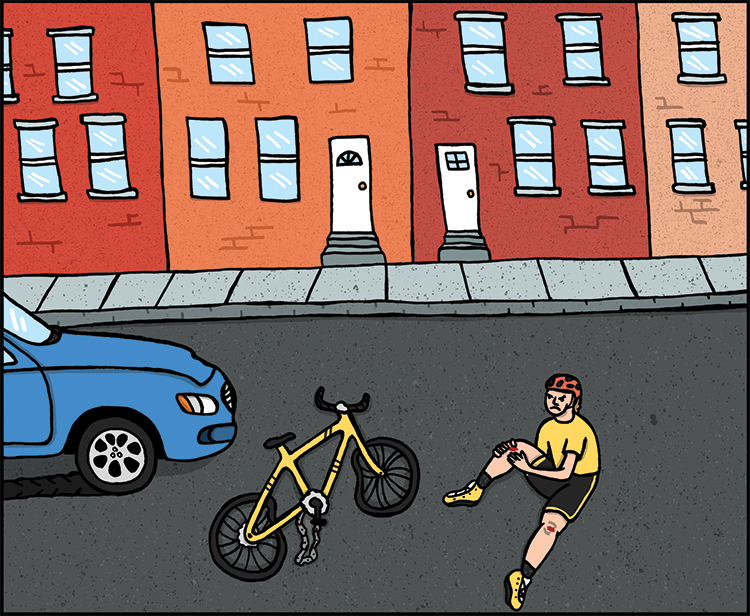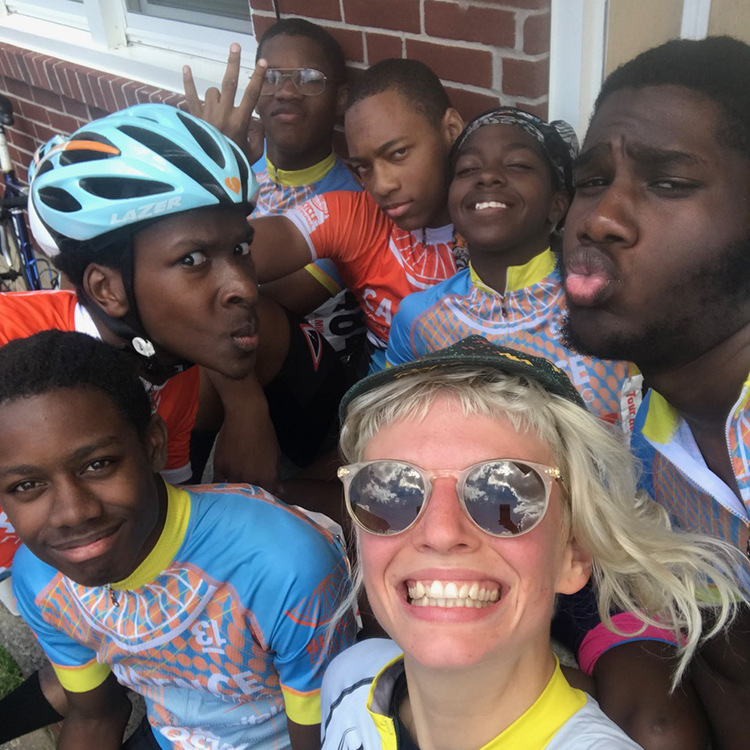A second opinion
By Paige Wolf
Several years ago, Katrina Shafer of Bala Cynwyd was afraid to date. ¶ Suffering from fever, hot flashes, painful cramping, fatigue, extreme mood swings, joint pain and depression, she was nervous about embarking on intimate relationships. ¶ She had been diagnosed with a vaginal bacterial infection and treated with three different antibiotics, but her symptoms did not improve.
After trying a combination of conventional medicine and home remedies that offered nothing but frustration, Shafer visited Tara Nayak, N.D. Nayak practices out of Threshold Wellness, a five-year-old wellness collective in Fishtown that offers massage therapy, psychotherapy, naturopathic medicine, art therapy and acupuncture.
Shafer said she noticed significant differences in Nayak’s approach, beginning with testing that went beyond the standard OB-GYN checkup. She submitted a sample for a sequencing-based clinical vaginal health test, which identified a high level of a microbiome not identified in her other culture tests. As a result of this more extensive testing, Dr. Nayak prescribed her a specific probiotic along with daily intake of raspberry leaf tea, natural detox products, B6 complex and craniosacral therapy.
Shafer says her response to this treatment was almost immediate.
“My mood improved within a day, and during my next menstrual cycle I did not experience any PMS, cramping or depression,” she says. “My cycle length was back to normal and just about all of my symptoms improved.”
Cheryl Hess,a TV and film producer in South Philadelphia, has a similar story. When she was suffering from patellar tendonosis, she was told surgery or expensive injections were the only options.
Her primary care doctor asked that she avoid certain basic functional movements, putting a huge damper on her fitness regimen. After months of the injury not healing, she visited an orthopedist who said she could either get surgery that would take a year to recover from or try PRP (platelet-rich plasma) injections, which were expensive, considered experimental and not covered by insurance.
So she went to see Sarah Lefkowich, who now runs West Philadelphia Community Acupuncture. Hess claims that a series of treatments spanning three months healed her entirely.
“I had this hard lump of scar tissue on my knee, and I couldn’t kneel on a hard surface without pain,” she says. “Now the lump is barely noticeable and I have no pain.”
Complementary and alternative medical practices outside mainstream medicine have existed for centuries with fluctuating popularity. But the past 20 years have seen a resurgence of interest in these practices, particularly as “integrative medicine,” in which alternative practices may complement conventional methods.
Two decades ago a study in the New England Journal of Medicine showed that more than one-third of Americans regularly used alternative practices and paid for them out-of-pocket. The national survey also suggested that the estimated number of visits to these practitioners exceeded the number of visits to all primary care physicians.
Anecdotes like Shafer’s and Hess’ are becoming more and more common as greater numbers of people, driven by conditions and diseases they can’t cure or relieve, feel that Western medicine is inadequate or incomplete. There is a growing concern that Western medicine is focused on “quick fixing” problems with pharmaceuticals and surgeries, rather than focusing on prevention and eliminating root causes for illness.
The promise (and problems)
of naturopathic medicine
Dr. Nayak is part of a growing number of professionals working to provide the Philadelphia community with medical care that works to understand the person as a whole and seeks root causes to afflictions rather than just trying to eliminate symptoms.
As a naturopathic doctor, Nayak feels prepared to handle any health concern as a general practitioner. And becoming a licensed naturopathic doctor is not simply a quick-click online degree.
A state-licensed doctor of naturopathic medicine degree (N.D.) generally involves four years of graduate-level study and requires students to hold at least a four-year bachelor’s degree to apply.
In addition to general family practice, N.D.s like Nayak offer more personalized treatment through genomic analysis (gene testing) and microbiome and hormone testing.
Nayak says these tests offer the data she needs to create individual plans, where food is the first offense and defense, and herb and supplements are prescribed as needed.
Many of Nayak’s patients are seeking treatment for chronic diseases, digestive issues and hormonal imbalances.
“Whether a patient is dealing with an acute illness, trying to prevent future problems or dealing with a lifelong health issue that hasn’t been figured out, I work to uncover the underlying causes of health concerns and provide lasting solutions that fit into my patients’ busy lifestyles,” she says.
It was only last year that Pennsylvania passed legislation to allow licensed naturopaths to practice. The growing interest and support affirms Nayak’s belief that the demand for integrative medicine is at the precipice of a paradigm shift: Prevention, food and individualized medicine are the wave of the future.
However, there is also a controversial element to this phenomenon. Some people have tried these less scientifically proven methods and avoided conventional medicine with dire consequences.
In 2016, Chinese actress Xu Ting died of lymphoma after opting for alternative medicine such as cupping, acupuncture and skin scraping instead of chemotherapy. Steve Jobs, who died from the growth of a pancreatic tumor, was known to have delayed operations and chemotherapy in favor of acupuncture and other alternative remedies.
Some cancer experts say Jobs may have extended his life or even survived if he had promptly tackled his cancer with scientifically proven medical treatments. Others argue that it’s impossible to know whether traditional medicine would have extended his life or if the role of naturopathic approaches improved the quality of his life, but, as Forbes Magazine reported in 2011, Steve Jobs’ biographer Walter Isaacson said Jobs admitted regret over his medical decisions.
Dr. Rick Pescatore, an emergency physician and the Director of Clinical Research for the Department of Emergency Medicine at Crozer-Keystone Health System, has had enough firsthand experience to be skeptical and concerned about people using alternative methods in lieu of traditional healthcare.
“Healthcare, particularly in emergencies, is a zero-sum venture. So-called ‘complementary’ medicine must take the place of something else—even if that something else is simply time and rest.”
He believes that if something makes you feel better, it’s worth discussing with your doctor. But if it delays you from seeking appropriate and traditional care, it can be extremely pro
blematic, and he points toward a recent article in JAMA: The Journal of the American Medical Association that demonstrated a nearly two-fold increase in death in patients who sought alternative therapy instead of or alongside conventional cancer treatment.
“In the ER, we have seen patients who have not gotten proper medical treatment for cancer and heart attacks, which has resulted in them getting significantly sicker,” he says.
He has also seen “natural colon cleanses” send people into renal and liver failure, and says some supplements can be dangerous and cause electrolyte abnormalities.
That said, he agrees conventional medicine is not immune to “taking it way too far to the right.” He believes treatments like acupuncture have a place as an alternative pain technique, especially as we try to limit opioid use.
“But to give anything to patients that hasn’t been rigorously tested is unconscionable,” he says. “It’s an abdication of our responsibility to give safe and effective medication.”
Sometimes those who seek naturopathic care return to conventional medicine. In 30-year-old Emma Criswell’s case, naturopathic remedies were not the path to wellness she was hoping for. In fact, she says, delaying antibiotic use and relying on supplements made her worse.
“My naturopath was correct in testing and diagnosing me with SIBO [small intestinal bacterial overgrowth],” she says. “But she promised she could help me with the use of antimicrobials and prescribed digestive enzymes.”
Unfortunately for Criswell, this protocol led to a worsening condition and new symptoms, and despite a wide variety of pills, powders and diet changes being swapped out by her naturopath, she continued to feel extremely ill and exhausted.
Finally she saw a GI doctor who agreed with the diagnosis—but not the treatment. She started a round of antibiotics and claims her health immediately improved.
In Criswell’s case, conventional care was the way to go. But sometimes it’s hard for patients to know where to go first in the evolving landscape of care options.
An evolution from the traditional
Five years ago, Dr. Heather Moday was working for a private allergy and immunology practice in Philadelphia. Over her 11-year tenure, she noticed an increasing number of patients with multiple medical problems and long lists of prescription drugs. The quick pace of patient transitions, which is largely dictated by the insurance payments, didn’t allow her to take the time to get a holistic view of a person. Frustrated and unable to help her patients in the way she felt she should, she decided to change the way she practiced.
“In most traditional medical practices, the focus is on diagnosing a patient with a disease and then treating the symptoms with medications,” she says. “There is little emphasis on finding the cause of the problems and dealing with them at their source. Also, there is a prevailing opinion that chronic health problems like heart disease, diabetes or autoimmune diseases are not reversible and the only treatment is more drugs.”
Dr. Moday wanted to spend more time working on lifestyle changes with her patients and emphasizing prevention of disease instead of focusing on treating people with more medications. So she completed training to become board-certified in integrative and holistic medicine and opened her own private practice in Philadelphia in 2015.
Dr. Moday explains that most doctors become highly specialized in their own fields, which does not allow the full examination of a person. But she believes we should be examining the full connection between someone’s hormones, nutrition and GI system.
“You can’t be hyperfocused in one area, only looking at tiny microcosms,” she says. “In addition to exploring a patient’s diet, sleep patterns and lifestyle, I also wanted to learn more about how other cultures treat illness.”
Dr. Moday says her client base is a mix of self-educated, proactive young people who want to learn about prevention and achieving their best health and people frustrated with the care they’ve been getting, often dealing with chronic symptoms no one seems to be able to figure out or being treated with drugs that don’t address the root problem. She also hears people expressing frustration with their ability to get in touch with their doctors to answer questions—something she also sees as a symptom of the “system of quick fixes.”
Dr. Moday says she sees a proliferation of people with autoimmune issues including fibromyalgia, arthritis and a wide variety of gastrointestinal problems. One of the biggest root problems she addresses is gut health, which she says is tied closely to the rest of our body’s immune system and function.
“As a population, we seem to be sicker in general with a significant increase in chronic illness,” Dr. Moday says. “The American healthcare system is great for putting out fires—groundbreaking surgeries and cancer treatments, but we have a surge in chronic pain, obesity, depression—and our system is not built for that.”
The economic hurdle
In the world of alternative medicine, costs of visits and programs widely differ. Community acupuncture—in which several patients are treated in the same room—is often based on a sliding scale with visits as low as $20. A visit with a naturopathic doctor can range from $100 for a monthly follow-up to more than $1,000 a month for a concierge service.
Since most alternative treatment is not covered by insurance, cost is often the biggest barrier for patients seeking integrative care.
Nayak offers group and family plans and hopes patients will see the money they spend as an investment in their health.
Dr. Moday sees healthcare as a value judgment: In order for her to provide the services she does, she has to charge a certain amount because she only sees about six people per day.
Depending on your health, one thing Dr. Moday suggests is opting for a high-deductible insurance plan with a health savings account (HSA.) This way, you may be paying much less than if you see a conventional doctor, and you can use an HSA to cover things like supplements and acupuncture. However, critics of of HSA plans warn that they leave consumers vulnerable in the event they need expensive care.
There are also a growing number of integrative medicine practices affiliated with traditional hospitals that may take health insurance, like the Myrna Brind Center at Jefferson Hospital and PENN Primary and Integrative Medicine in Exton.
And, of course, if alternative medicine is successful in improving your ailments, you may be able to rid yourself of prescription copays. Of course, the savings in time—sometimes years lost from a disease or injury—is invaluable.
Getting to the roots of a health issue
After a six-year history of abnormal pap smears and a diagnosis of a high-risk HPV strain, Michele Rogers’ cervical dysplasia advanced to a concerning degree of abnormal cells. The tradition
al course of action would have been to perform a painful and risky procedure, requiring six weeks of healing time and possible future pregnancy complications.
So Rogers, 39, decided to do some research on her own and pursue a naturopathic regimen that included high doses of certain vitamins, nutrients and supplements.
After two courses of the protocol and her first pregnancy, not only did her pap smear return to completely normal, but the HPV was no longer present in her system, something that her conventional doctor said was impossible.
Ike S. was another patient who had hit a wall with Western medicine. He was suffering from multiple herniated discs, creating throbbing pain and numbness in his neck and back. After a series of X-rays and MRIs, an orthopedic prescribed anti-inflammatory muscle-relaxing medications, local trigger-point cortisone injections, lidocaine patches, Botox injections and an epidural.
But he says these solutions were of little help, and in the end, the doctor recommended continuing to live with the pain, significant surgery or trying an alternative form of medicine. He appreciated the traditional doctor’s suggestion to explore alternative methods, which led him to Jacquelin Doyle, board-certified acupuncturist, herbalist and clinical director of Renaissance Healing Arts in Philadelphia.
Ike says with acupuncture, diet evaluation and nutritional-supplement guidance, he quickly became pain free and feels fully recovered from his herniated disc injury.
Ike says Doyle really took the time to understand his symptoms and the various other factors in his life. And while he appreciates the value of the doctors who used modern technology to pinpoint his injuries, he is grateful to alternative treatments for providing relief he could not find through conventional methods.
“You should always address the underlying issue first,” Dr. Moday says. “Rather than becoming dependent on acid-reflux medications or antibiotics, there may be diet and lifestyle changes that can repair the root of the problem.”
And on this note, both sides of the alternative medicine find common ground.
Dr. Pescatore agrees that the U.S. healthcare system is problematic and doesn’t allow him to spend time helping patients improve their lifestyles; it’s too easy to prescribe quick fixes via pharmaceuticals.
“It’s incredibly easy for me as a physician to say, ‘Oh, you have acid reflux—take these pills,’ but it would often take more time than I can reasonably allot in the ER to really discuss the root cause and help people to, for instance, lose weight or stop smoking..”
But Dr. Nayak cautions that you shouldn’t tear up your health insurance card.
“Don’t come to me if you just got run over by a truck!” Nayak says. “Sometimes we need pharmaceuticals to get us over the hump. There can be a place for conventional medicine, but I believe there is always a place for natural medicine.”








